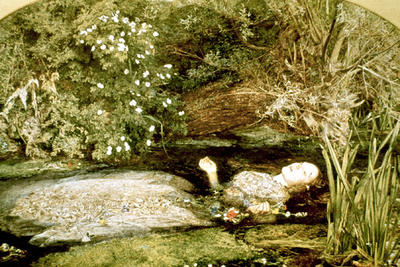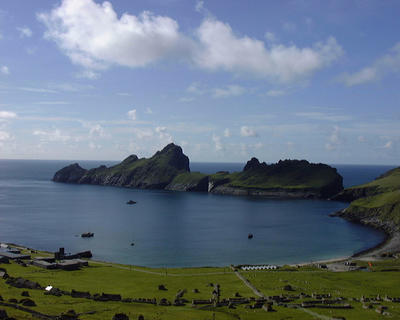Vantage

Here is an early poem -- 1976 -- written for my first poetry class, during my freshman semester at Whitworth College in far, dry, dark-in-winter Spokane Washington.
I was fresh from highschool harrows in Chicago, a dismal urban tableau, post-Watergate, post Nixon, deep in the oil crisis of that age; my family sundered once again, this time for good, father heading to New York City, mother and younger siblings to Florida, an older brother to California; my futile first love for a classmate washed away, lost to her indifference, drowned; and finally I was in the undertow of rejecting my Christian faith, harrowing in that lonely awful season the big empty hole Christian certainty one resided in, leaving me to fill the gap as best as I could, or with infernal internal resources that were at hand -- studies in world history and Western culture, the dim candle of poetry.
Anyway, the poem is set neck-deep in that awful water. Surely it’s juvenile emulation of Roethke’s “The Waking,” certainly that rhythm and voice and paternity was in my ear (weird, hmmm, that lonely son’s voice singing in my deep fatherlessness), but I thought of the poem yesterday driving to work before I uploaded yesterday’s post (“Oh Lonely Rock”). Let’s call it an archetypal fathering and mothering in a rude-winded, sea-salt-wracked sentience, oh so bittersweet, gorgeous and, eventually, the home I reside in here. An essential, original text.
THE ABANDONED DEEP
(begun 1974; tweaked over the years)
A wet wind brushed my face:
those jagged clouds are not angels:
Mother, I long for a bleaker space,
free to roam with grey eyes
among the grim legion of dead
November trees where voices cry
For the darkening coils of a sea
Reaching for the petrel moon.
Such deaths as mine cannot be grieved
By the ticking of a clock
Or the payment of a sum.
Abandoned souls cannot dock
In garden or bay. Instead let winds
lash and hurl their furies on me:
wave-weary boulders are my closest kin.
***
O sad and destructive years as sea and shore composed their feral dominions in me! Today I sit on the granite shoulders of fathers, my face glazed with the savage blue milk of mothers, in my element of the mythological wind and wave, here as I daily read and then write in a predawn soak of paper wilderness, imagined jolly rogering and lacy glossolalia -- The mythic method of reaching back to proceed, diving down to rise. Crassly, it’s an articulation of restlessly porous conscious and unconscious systems, in an equilibrium of sorts (infernal or divine) which resulted from so many years of mortis and savagery and desperate wakenings, the leaden transit of dissolution and madness in the neon cunt of a giantess called Desire: wild horses eventually reined, fire and foam held at arms’ length, young man chastened, prodigal, getting to work eventually in the father’s fields, learning to leave the bright bowls of fruit at the doors of the dead, learning and leaving tales of blood oranges here in the dark labyrinth of words -- blogosphere, noosphere, blue spheroid defined by the sine wave lapping between I and Thou.
Neumann, in The Origins and History of Consciousness: “The integration of the personality is equivalent to an integration of the world. Just as an uncentered psyche which is dispersed in participations see only a diffuse and chaotic world, so the world constellates in a hierarchical order about an integrated personality. The correspondence between one’s view of the world and the formation of the personality extends from lowest level to the highest.”
Ah but which world? Which voice? My affinity with St. Oran over St. Columba is perhaps mythological, but I side with the sea-soaked skull of Oran that St. Columba uncovered after three days in the foundations of his abbey (Oran dispatched there to appease an angry water-lord, perhaps Manannan), that blackend maw suddenly animate and singing, “all you say about God and man and heaven and earth is WRONG!” Western civilization built forward from the grave of Oran, but I choose to build there, farther out toward the sea, working a crannog just offshore, in a sea scriptorium amid the singing, brine-broguing skulls, rassling the waves, writing down that big night music.

REGIS MARINUS
I ran from my old man
and took to a dark sea
of strange women and
malt whiskey, becoming
in that nekyia the little
man in the boat, an
old man tossed on
Your sea. Years of
spiralling round that
singular tide, seeking
rebirth, or at least
a dolphin enough
name for my purpose
which could ride
me to shore at last.
But as such waters
devour as they embrace,
my tutelage was
infernal, wraith-like,
and finny, all my arts
foundering between
huge waves. That night
lasted for 300 years,
it seemed, until at
last, until I found
a way to build a chapel
of voyaging stone,
a house which gave
my errancy an oar.
Daily now I row those
dark brine haunts
which I once thought
dove between my
love’s sweet breasts:
fructive poems whose
mortar is ferried
from the sea inside
that ancient sea,
jotted in squid ink.
A different dad might
have made a different
son -- bank president
or father of eight,
a builder or foundryman:
But, sired himself
in Oran’s perplex cry
and milked in
Onan’s shade, that
old wild man loved me
only as he knew how.
Which meant while he
was raising stones
I was skipping town, in
love with the feel of water
on my feet below, the night
sea huge and potent
and a riven swart blue,
sweet and dangerous
as every woman I found
out there who nursed
me to the same steely
glare my father
basks upon the space
his absent son
cries for old stone.
***
GIANTESS
I am Cupid’s WMD, a
Catapult of blue breasts. The skulls
Of my scooped-out lovers line the
Mazes of my cave, far beneath
The rolling sea. By day I dream
Of your cock and balls in this mouth
Of stone; by night I feed, tapping
O so gently my suckered limbs
Against your window panes, calling
You out to drown my way. My rule
Has lasted here some four hundred
Million years, yet every dusk which
Darkens abyss I wake afresh,
Starved wet in uncoiling desire,
Beak snapping for your milk of fire.
ST. ORAN AND THE GIANTESS
You found her sleeping in that cave
Which fonts the western sea, below
All depths I dream. Kissed her gently
As a shade and watched her stir and
Sigh and slowly open her deep
Eyes. She whispered your name as you
Climbed in next to her, singing
All the while. What happened next you
Would not say, except to smile that
Dolphins and sea horses pranced round
The bed while sea-blooms widened to
Hurl wavelike a wild blue perfume.
You drank in draughts the distillate
Of her salt souterrain, till dawn
Awoke me startled here, blank page
Beneath, and pen like her in hand.
My joy’s your shore, this crashing land.
YOUR VANTAGE
History has no stipulatable
subject matter uniquely its own;
it is always written as part of
a contest between contending
poetic figurations of what the past
might consist of.
-- H. White, “The Historical
Text as a Literary Artefact”
O my crannog, I resurrect
you from the briny murk
of erasure exactly where
you once seamed shore
to dream—because
there is a vantage in me
I can only see sitting here in
your drowned bower.
There is a history which
Oran bids me write
that requires a perch
in this esplumoir
which arches up within
ten feet of every day,
my eyes trained
on that undertow
where angels sing
salt praises riding seals
and wilder men than I can
name inscribe their
finny majescule.
Time winnows
through these branches
like mercury, gobbets
which sustain in a coda
for one hour of an age
and then scatter, racing
on and down the flow
which greets tomorrow’s
perch. From here the
occasional car at 5 a.m.
ferries Saint Libern to
Inis Cathaigh where
he was buried standing up
to bulwark boneyard walls
from river and time and sea.
He stands on the ground which
is both sky and marge,
touching the rubble of abbeys
and galleons and the World
Trade Center. His bones
bell death from a deeper,
surer glow, pealing from
bronze cast long long ago.
At this altitude the blue
current is a jet-stream
of sorts, greater than any man’s
solitary jaunts in verse.
No rudder upon vellum’s
apt enough for crossing at
this height, this depth.
From here I see the feet
of Libern and Oran and every
other man sacrificed standing
up to appease the colder gods
of brine and basalt: Each pale
toe and heel tears through
the parchment page. From
here I see the butt-ends of
all crosses which burdened
faith with history. From
here I see the hoary shoes
of Stonehenge, arranged like
boots of some far older army
which sank there when
swords crossed. Odd the
reception at this
height which is yet
the depth and the breadth of
time; the insides of ages
attenuate that rhyme
which rises from the
first Book of Swells
which the master tossed
down Oran’s Well. Inside
and down there’s
a hoary Pleistocene
whose huge hand hauls
mine across the page,
inscribing strange and
stranger lines, blurring
history in mystery
till all arrives in you,
my crannog, my tower
of blue Babelogue,
my white moulting ground,
my pulpit where wilder
psalms are flung wide
to the night which will
soon pulse pale light.
Soon I must rejoin
the row of my day
using oars which cannot
find this depth. Soon
I must return to all the
songs now past their prime.
My life drones on above,
a squeak in the squawk
of a billion-fold throats
boating from A to B.
And happily I’ll
go, in this house
where love survived
its rages to build a
durable enough home
for love’s ages.
At least, that’s the plan.
Cancer and cloaked
terrorist are also mixed
in this tide, age with
its spigot turned so wide.
If I did not have this hour
on your porch, how strange my
feet would feel as they break
on through, as they usually
do, the crust of all a life
can’t support, much less rise.
How terrible that sudden
blue emptiness of wild
clutchless sprawls
for all those years I
didn’t know that You’re
spread further down
to catch every angel that falls.

<< Home